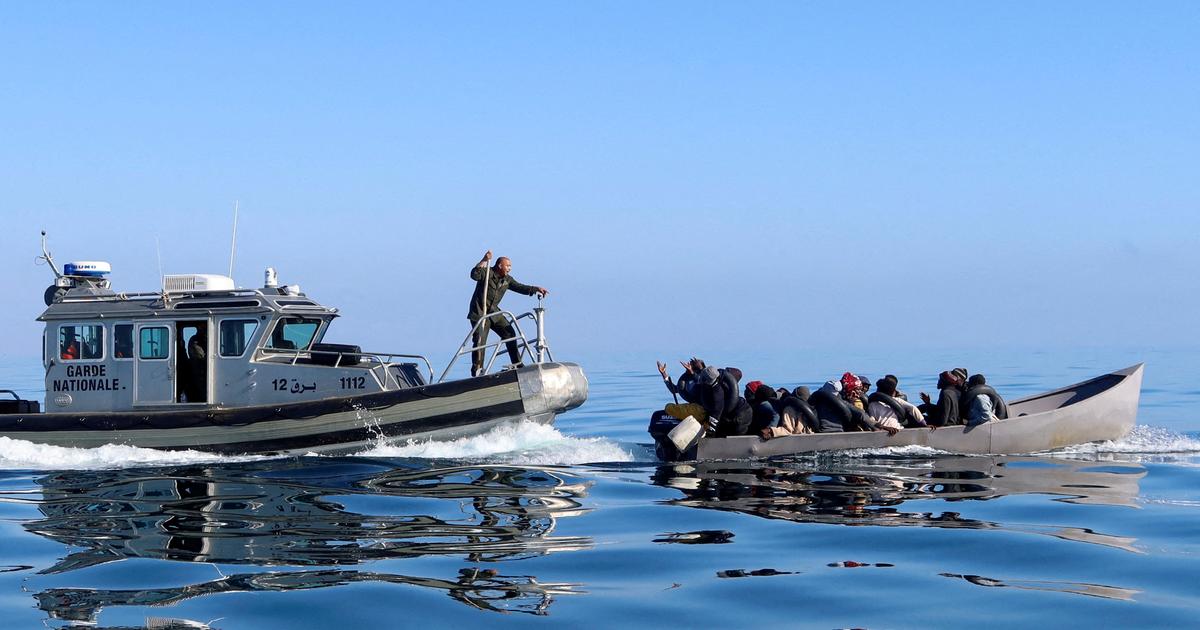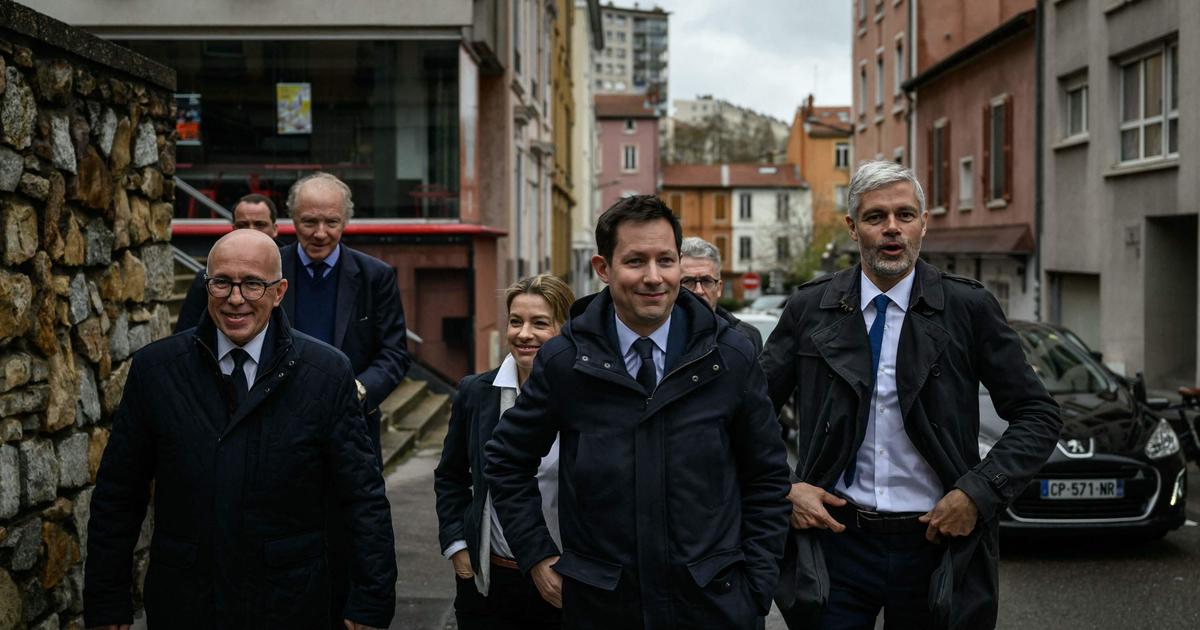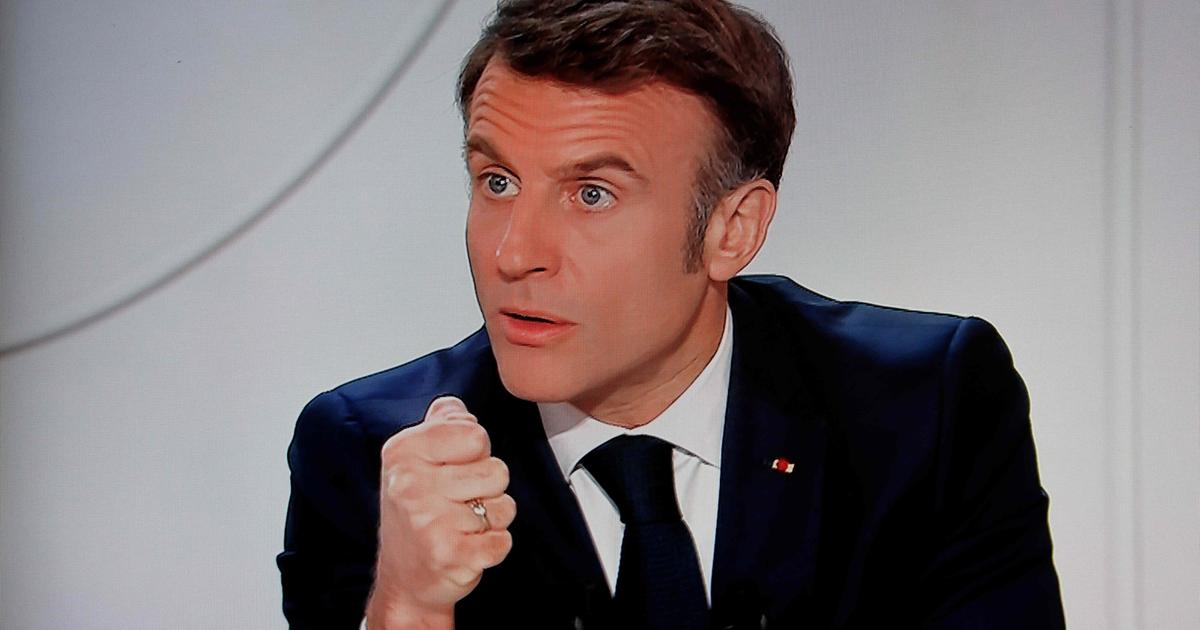Margaritis Schinas, on December 17 during the interview in Brussels Delmi Alvarez
He speaks fluent Spanish with a mysterious Asturian accent and unexpected sparkling colloquial twists.
Get to know Spanish politics in depth, and wait for the tape recorder to turn off to tell hilarious gossip, irreproducible in writing.
Margaritis Schinas (Thessaloniki, 58 years old) has held positions in the European institutions for the last three decades;
Today he is the Community Vice President responsible for the migration agenda and the "protection of the European way of life", whatever that is.
Schinas is a genuine representative of the European center-right;
a classical liberal, whatever that is too.
And it sponsors a migration plan that the EU intends to approve in 2021 and that includes tight border control with 10,000 Frontex agents, diplomatic agreements with North African neighbors and a solidarity mechanism that is insufficient for the South and for the East. - and for some Central European partners - it is excessive.
"It is not the economic crisis or the increase in inequality that best explains the rise of populisms, but our failure to address the migration problem," he warns in one of those rare face-to-face interviews that the pandemic has recently allowed in a sunny and radiant Brussels.
And that is weird.
Question.
With the coronavirus, migrant arrivals have been reduced, but immigration does not fall off the agenda, it does not stop causing disagreements and we have even seen episodes of xenophobia, the last of them in the Canary Islands.
Why is there this paradox?
Reply.
Unlike 2016, today we do not have systemic pressure, a real crisis, but Canary-style outbreaks, as we saw before in Calais, in Lampedusa, in the Greek islands or on the Balkan route.
What happens is a consequence of not having a comprehensive migration management system, which regulates from the arrival of the migrant until he requests asylum or is returned, and that includes shielding the borders, diplomatic relations with the countries of origin and transit and solidarity mechanisms.
With that pact, I am convinced that the Canary Islands would not have happened.
Q.
But that Brussels project has received a frontal rejection from the countries of the South, who consider that it is biased towards the interests of the center and the east.
A.
There is no such frontal rejection.
And no, there is no such bias.
I say this as one of the authors of the pact, but also as a Southerner.
P.
Pedro Sánchez has stressed that it is "clearly insufficient."
And a letter from Spain, Italy, Malta and Greece describes some aspects of the plan as "pure fiction".
R.
Five years ago, with a proposal from the Juncker Commission made from the heart - mandatory refugee reception quotas - we crashed: what is technically feasible is sometimes not possible in politics.
We can continue to make proposals from the heart, but I prefer to put on the table something that can be approved: the South will have the certainty that there will be effective and permanent solidarity, and in the East we will give the option of not having mandatory relocations but equivalent measures, such as this idea of sponsored returns;
the country that does not want refugees assumes — and pays — the returns on behalf of the Twenty-seven.
But the tone of that letter, I insist, was not one of outright rejection.
P.
Well it seemed.
In the usual diplomatic wooden language, it is a very tough letter.
R.
We have a problem in the Mediterranean, from Greece to Ceuta and Melilla;
to the Canary Islands.
And it is not a Greek, Italian or Spanish problem, but a European problem.
Europe is contributing money, with means, but we need a paradigm shift: we cannot go on and on, plugging holes when a problem arises.
In that letter, the South makes its priorities clear, but also the countries of the Visegrad group have rejected this proposal.
We will have done something right: I think there is room in between to be able to land an agreement.
The populist front must be silenced by showing that the EU can solve the migration problem.
Q.
Is there a silver bullet for the South?
R.
Why did we have the crisis in the Canary Islands, why were there 20,000 people without an asylum profile?
Because Morocco did not control that area, and because Frontex, the European border agency, was not there either.
That would change with the pact: that is the silver bullet that we have.
Q.
And why do you think Spain does not welcome Frontex's presence?
R.
That I wonder, why Frontex is not in the Canary Islands when there is a serious problem - there are barely seven observers - and it is en masse in the Aegean, with hundreds of agents.
Q.
Isn't the Canary Islands an aperitif of what can come?
As in Moria, the model seems aimed at keeping immigrants bottled up on the islands, at the gates of the continent.
Doesn't the plan lead to the appearance of other Arguineguín docks?
A.
Not at all.
P.
Experts think so.
The Spanish Government is also suspicious.
R.
The plan introduces the notion of a migratory circuit: everything is connected to everything.
There is a previous work of diplomacy with the countries of origin and transit.
Border control is reinforced with 10,000 agents.
When a migrant still arrives, the first thing is to do medical and security examinations, and determine the asylum profile.
That has to be ready within five days, not one more.
If the person has an asylum profile, legal procedures are started;
if not, it is returned to you under the agreements signed with the countries of origin.
Quickly.
Let's go back to the Canary Islands: 20,000 people gathered there because Morocco was looking the other way, and because border control failed with a crash.
That would improve with our proposal.
Q.
Are you saying that Morocco is not cooperating enough?
R. A
lot of European funds go to Morocco, and Rabat collaborates in the part of the Strait, but not in the westernmost area.
P.
And it seems that it will not if Europe does not put more money.
Isn't it a kind of blackmail, are there no perverse incentives with Turkey or Morocco?
A.
Money is essential, but it is not just about money.
They are also visas, commercial interests, diplomatic relations, Erasmus scholarships, economic incentives.
It is not about running after problems today in the Canary Islands, tomorrow in Lampedusa and the day after in the Greek islands;
it is about reaching agreements with a score of countries to which we are going to make a good offer, and putting the rest of the plan on its feet.
Now we depend on the countries of origin and transit, and almost on the people who have power in those countries, to get things under control.
And that cannot be.
P.
"Greece is the Real Madrid of the Balkans," he said some time ago in his country.
But what comes is the Moria fire, or the fact that Frontex looks the other way in Greece with the hot returns of Afghans.
Is that presentable?
R.
Moria, like the Canary Islands, tells us clearly what needs to be changed.
And the first thing to forge that immigration agreement is that the borders of the Union are protected: we cannot leave that to the exclusive responsibility of the front-line States.
Border control must be Europeanized: we must achieve tight control of European borders, as the US does. When you arrive in the United States it is clear that you are crossing the US border;
When you arrive at the external border of the Union, you also have to be clear that you are arriving in Europe.
To activate solidarity, the borders must first be shielded.
That being said: we are the EU.
We are not Australia.
We don't build walls.
Q.
There are more than a thousand kilometers of Walls in Europe, six times more than in 1989.
R.
Where?
P.
In Ceuta and Melilla.
In Bulgaria, in Greece, in Hungary.
Even in France there are.
R.
But they are exclusively to control borders.
Look, Europe is going to remain an asylum destination.
But border control and the right to asylum are not antithetical, no matter how hard some parties may be.
We are Europe: we can do both.
Frontex is not only asylum seekers, there are also hybrid threats: remember Evros, where they brought 20,000 people on buses protected by the Army, promising that they would arrive in Munich the next morning.
Q.
When the pandemic remits, will arrivals be accelerated?
What are your forecasts?
R.
If the situation improves, as it seems, there will be more arrivals.
But North Africa is also going to benefit from tourism: that may offset part of the increase.
Q.
You are in charge of protecting the European way of life, right?
A.
Yes, I am vice president for the promotion of the European way of life.
Q.
How do hot returns fit into the European way of life?
A. They do
not marry well.
But the responsibility to protect borders is part of our values;
there is a very clear social demand to control them.
P.
Kundera defines Europeans as those who are nostalgic for Europe.
Those images of hot returns of Afghans with Frontex pretending that it is not there where it leaves the European values?
R.
We are not facing a binary choice: our obligation is to protect our borders, and provide asylum to whoever has the right.
But the polls are clear: people are asking for borders to be under control.
P.
Polls also say that migrants abuse the welfare state, and the real data denies it.
The Eurobarometer says that Italians believe there are 25% migrants, when Eurostat lowers the figure to 10%.
The Eastern countries, which are the hardest, present migrant percentages of 3% of the population.
Isn't this climate of opinion contradictory with the real statistics?
Isn't it counterproductive to go after polls?
R.
There are plenty of arguments in favor of a common immigration policy, and in the end those arguments will fall by their own weight: demographics force us to bring people;
we need workers for services and industry, for the digital and technological transition.
But you have to go looking for those workers in an orderly, legal way: not with boats.
You have to open the door so that people do not jump out the window.
Q.
The Von der Leyen Commission is one year old.
The virus caught the EU off guard;
the first answer was negative, with border control, and solidarity was lacking.
R.
But then things improved: the recovery fund is a Hamiltonian moment;
We have crossed a Rubicon and there is no turning back: that conquest is at the height of the euro or the single market.
And there is a second triumph: the European purchase of vaccines is an unthinkable success until recently.
2020 was not a bad year for Europeanism.
"Spain cannot fail with European funds"
Brussels is aware that the Spanish crisis is and will be harder than that of the vast majority of European partners.
The economic bump is greater, the fiscal scar will be more serious and the Spanish unemployment rates have no comparison in Europe, except for Greece.
Vice President Margaritis Schinas says that Spain has done what it should (temporary employment regulation files and ICO liquidity lines to sustain the economy), and that Europe has also done its part: suspended fiscal rules and approved a European fund recovery of 750,000 million euros, of which 140,000 million are for Spain.
Brussels has two doubts: if Spain will know how to properly spend all that money in a timely manner, and if it will know how to carry out the associated structural reforms, which the EU has been demanding since the days of Delors, not to mention Monnet.
“10 years ago the Great Recession was completely asymmetric: the South suffered austerity and the fracture with the North was very problematic.
But the coronavirus is a general problem, which has not made distinctions: it is a completely symmetrical crisis.
The North-South logic has been blurred.
And it will not return quickly: in the next two or three years the absolute priority is to get out of this.
“In the case of Spain, that Spanish-Spanish conversation full of noise, politicking, polarization is strange.
The EU is very interested that Spain and Italy do very well, that they show that they can spend that money and carry out the necessary reforms thinking in the medium term, "he says.
“The two political families - the Social Democrats and the center-right - that brought Spain into the heart of Europe now have a historic opportunity to guarantee stability for years, perhaps more than a decade.
The polarization is explained by historical reasons, but this is a unique moment.
Spain cannot fail ”, closes Schinas.

/cloudfront-eu-central-1.images.arcpublishing.com/prisa/GEP3OEK6BJCJLBXY7NFRUHF3AE.jpg)













